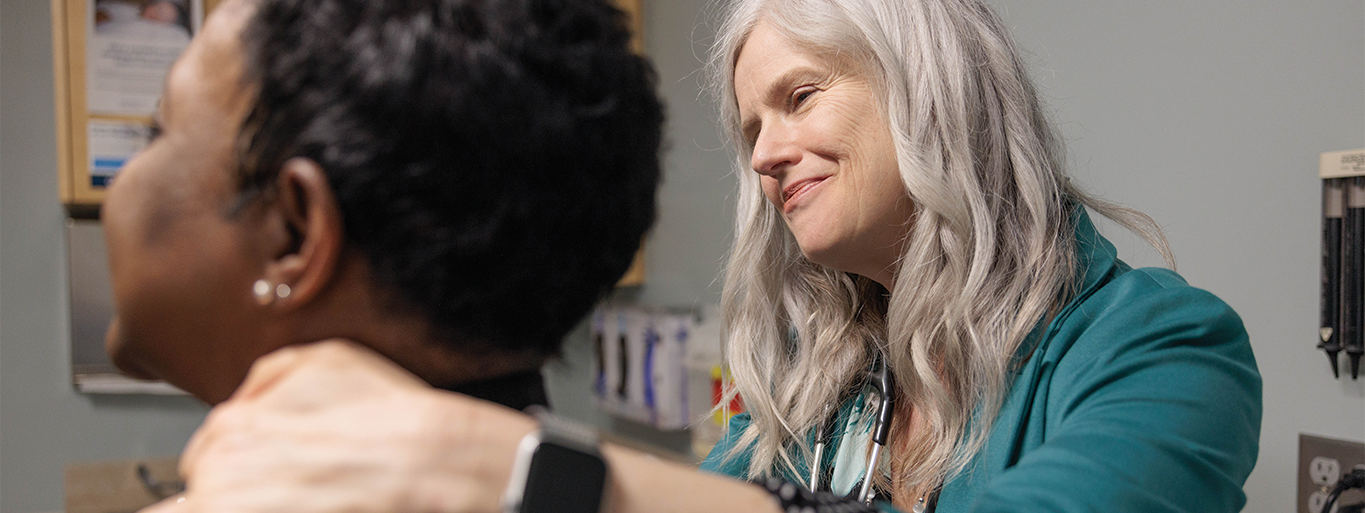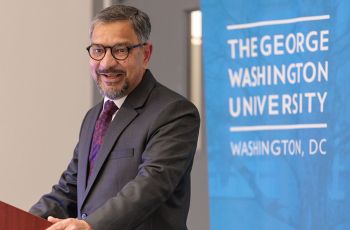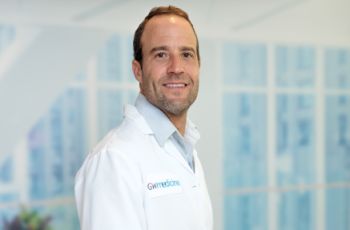
In 2018, Molly Cassidy was a new mother whose biggest looming challenge was taking the Arizona state bar. When she saw a doctor for what she thought was a persistent earache, the diagnosis turned her life upside down.
She had stage 4 oral squamous cell carcinoma, an aggressive form of head and neck cancer. After enduring a grueling treatment regimen of surgery, radiation, and high-dose chemotherapy, she was declared in remission and rang the bell in celebration.
It didn’t last. She soon discovered a tumor on her neck that quickly spread to her mouth, neck, and lungs. The prognosis was grim. Cassidy started researching end-of-life care options and writing letters and cards for her son’s future milestones.
One remaining option was a pioneering clinical trial led by Julie Bauman, a physician who specializes in head and neck cancer and is now the head of GW’s Cancer Center. The trial involved creating a personalized mRNA vaccine designed to target the specific genetic mutations of her tumor. After nine rounds of immunotherapy, no signs of cancer remained. Four years later, she is still cancer free.
It’s a story Bauman, who also has a master’s in public health, shares to illustrate how breakthroughs in research and treatment are showing promise for even some of the most difficult-to-cure cancers.
GW Magazine talked to Bauman about her lifelong dedication to service, the greatest advances in cancer treatment, and what she envisions for the future of the GW Cancer Center. Read the rest of the GW Magazine article here.



